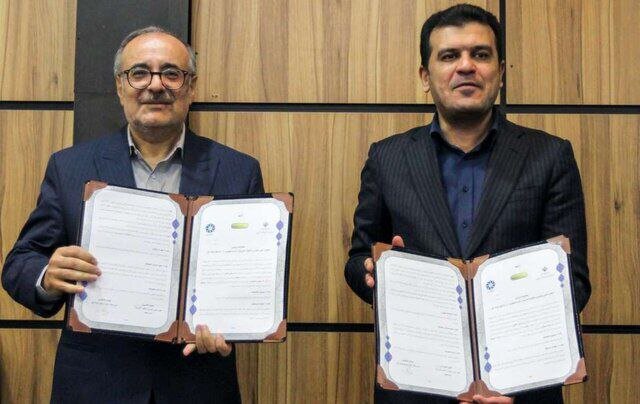Tehran – The Vice President of Science, Technology and Knowledge-Based Economy, and the National Development Fund (NDF) have signed a Memorandum of Understanding (MOU) to establish a $100 million fund for the development of the domestic artificial intelligence (AI) sector.
Signed by the vice president of science and technology Hossein Afshin and NDF Head Mehdi Qazanfari, the MOU aims to establish a framework for the development and implementation of AI, along with the seventh National Development Plan (2023-2027) and the leaders of the Islamic Revolution’s innovative innovation. Field, Isna reported.
According to the MOU, projects introduced by the Vice President for Science and Technology will be funded through loans, partnerships and other funding methods. To further increase cooperation between universities and the private sector, the NDF grants certain loans to companies that financially support AI-based projects at universities and science centres.
In return, the Vice President of Science and Technology will use funding tools for emerging technologies.
Iran’s rankings will be improved in government AI preparation 2024
According to a latest report from the Oxford Insights Index, which measures government readiness to implement artificial intelligence (AI) in public services, Iran ranks 91 in 188 countries, increasing three positions compared to 94 in 2023.
AI plays an important role in not only governing technology, but also helping to improve government performance.
The Government AI Readiness Index has become a reliable resource for policymakers adopted by the government as their official benchmark.
This year’s edition prepares AI from 188 countries at a time of growing complexity where governments face civic needs and challenges such as economic uncertainty, climate risks and increased inequality.
The 2024 Index examines 40 indicators across three pillars: government, technology sector, and data & infrastructure. It highlights progress, identify gaps, and provides actionable insights to policymakers working to integrate AI into public service delivery.
At its core, the index “quests whether governments are ready to implement AI in the delivery of public services.” By answering this question, it aims to support evidence-based decision-making and provide actionable tools that help policymakers unlock AI possibilities that can be useful to citizens around the world.
According to the index, the country’s highest rankings are in the improved data and infrastructure pillars compared to 55.88 last year. Includes infrastructure (70), data availability (43), and data representativeness (121) indicators.
The Technology Pillar scored 38.82, and in 2023 it was 38.77. Includes indicators of human capital (54), innovation capacity (62), and maturity (82).
Iran’s lowest score is the government pillar, 26.54, a decline compared to 2023’s 31.56. Includes vision (84), governance and ethics (145), digital capacity (92), and adaptability (177).
This year’s report shows Iran’s ranking in the region has been improved by one position, increasing from 17 in 2023 to 16 in 2024.
mt/mg

